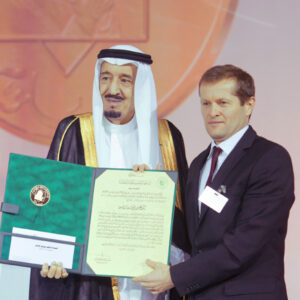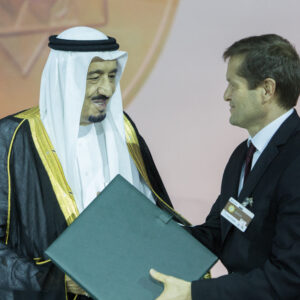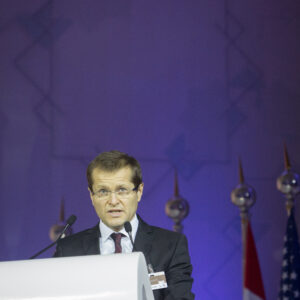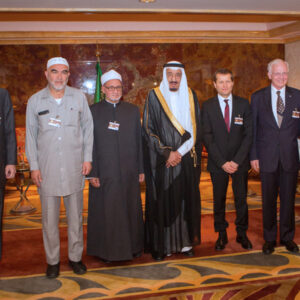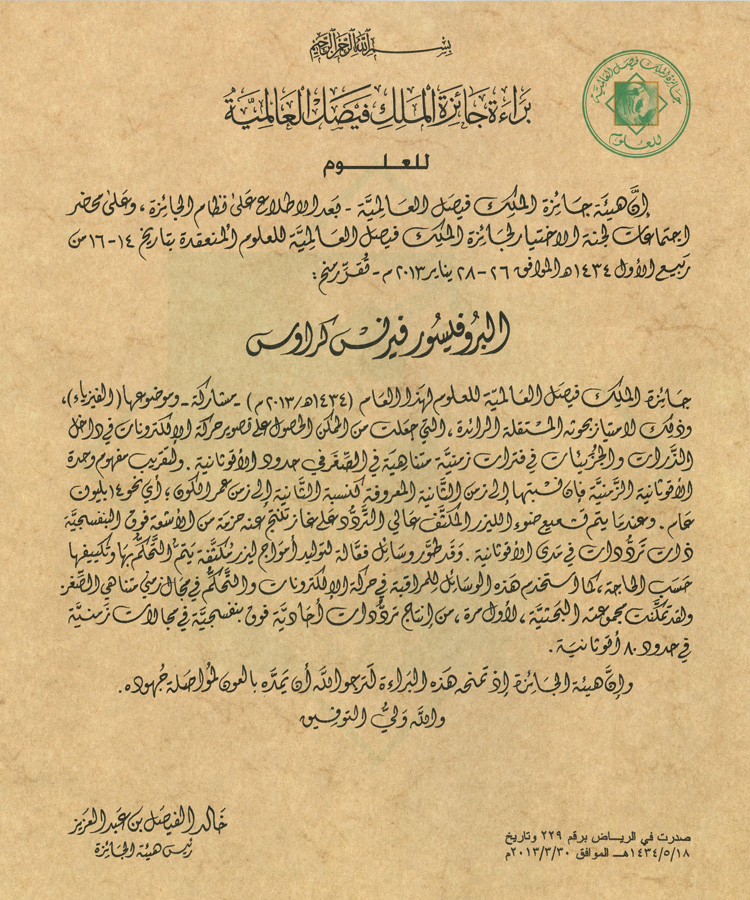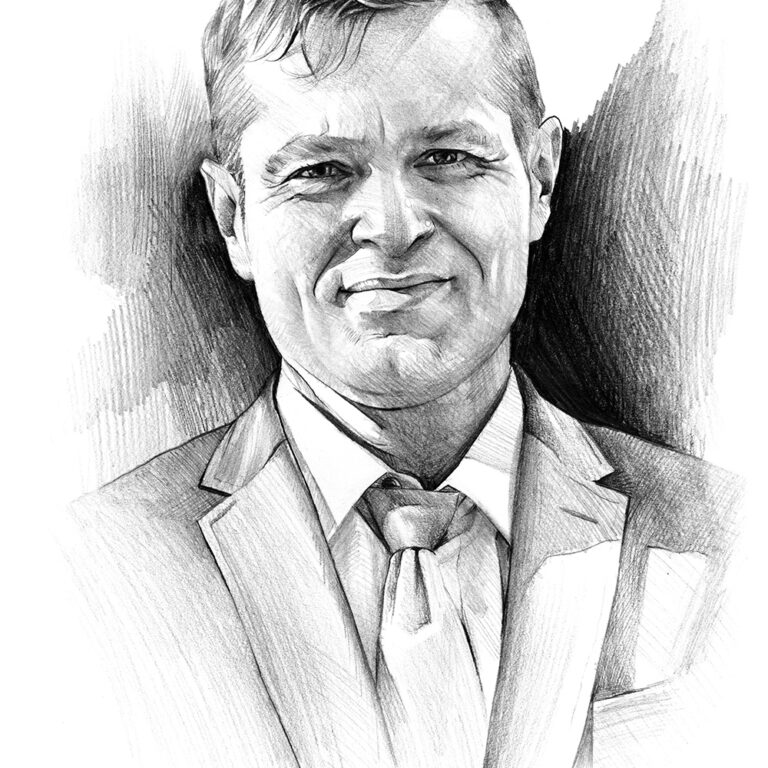

Professor Ferenc Krausz
King Faisal Prize in Science 2013 Laureate
Topic: "Physics "
Science knows no borders between countries

Ferenc Krausz studied theoretical physics at Eötvös Loránd University and electrical engineering at Budapest University of Technology in Budapest, Hungary, receiving his Diploma in Electrical Engineering with Distinction in 1985. He pursued his Ph.D. studies in Quantum Electronics at the Institute of Physics in Budapest University of Technology (1985-1987) and the Department of Electrical Engineering at Vienna University of Technology (VUT) in Vienna, Austria (1988-1991), where he also spent the following two years as a postdoctoral fellow, obtaining his Habilitation with distinction from the Department of Electrical Engineering in 1993. He joined the same institute as an assistant professor, from 1996-1998, and rose to a full professorship in 1999. In 2003, he was appointed as the Director of the Max Planck Institute for Quantum Optics in Garching, where he leads the Attosecond Physics Division, and in 2004, he became the chair of experimental physics at the Ludwig Maximilians University (LMU) in Munich. In 2006, he co-founded the Munich-Center of Advanced Photonics and became one of its directors. He is currently the Chair of Experimental Physics at LMU in Munich and the Director of Max-Planck Institute for Quantum Optics, and Director of the Munich-Center for Advanced Photonics.
Professor Krausz’s main fields of research include: ultrashort-pulse laser technology, high-field physics and attosecond physics. His other fields of interest include nonlinear optics, atomic physics, plasma physics, and x-ray physics. Krausz and his team generated and measured the first attosecond light pulse and used it for capturing electrons’ motion inside atoms at incredibly fast speed (1 attosecond is a billionth of a billionth of second). This is considered by Nature and Science magazines to be one of the ten greatest achievements in all areas of science.
Professor Krausz’s works were recognized by several awards and honors including the Wittgenstein Award in Austria (2002); the Gottfried Wilhelm Leibniz Prize of the Deutsche Forschungsgemeinschaft in Germany (2006); the Fritz Kohlrausch Award of the Austrian Physical Society (1994); the START Award of the Austrian Federal Ministry of Science and Education (1996); Carl Zeiss Award of the Ernst Abbe Foundation (1998); the Julius Springer Award in Applied Physics (2003); the IEEE/LEOS Quantum Electronics Award (2006); the British “Progress Medal” of the Royal Photographic Society (2006), and the order of merit “Verdienstkreuz am Bande” (order of merit) of the Federal Republic of Germany (2011). He was also awarded an Honorary Professorship at the Vienna Technical University (2005), and an Honorary Doctorate Degree from the Technical University Budapest (2005).
Professor Krausz is a member of the Austrian Academy of Sciences, the Hungarian Academy of Sciences, the European Academy of Sciences and Arts in Salzburg (Austria), and a foreign member of the Russian Academy of Sciences.
This biography was written in the year the prize was awarded.
- He received many awards and honors including:
- Membership of the German Academy of Sciences Leopoldina in 2016.
- Vladilen Letokhov Medal in 2019.
- Wolf Prize in Physics in 2022.

